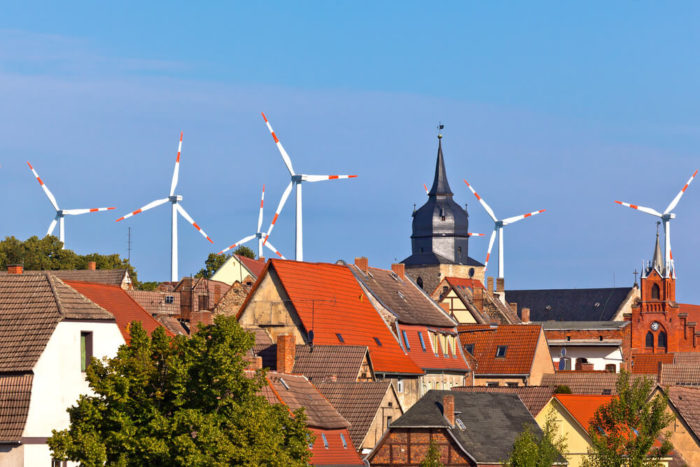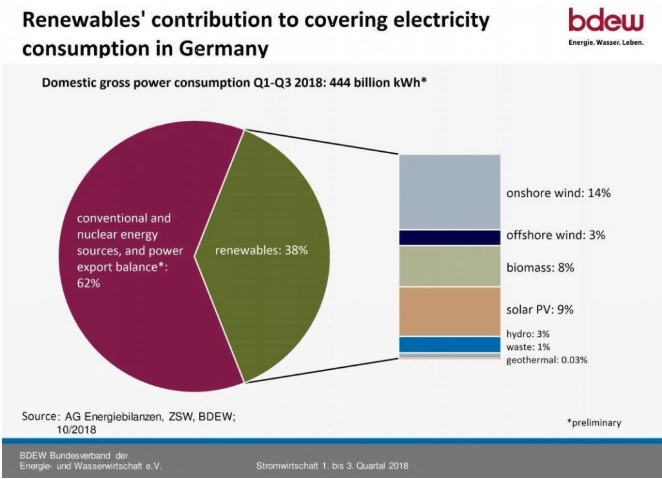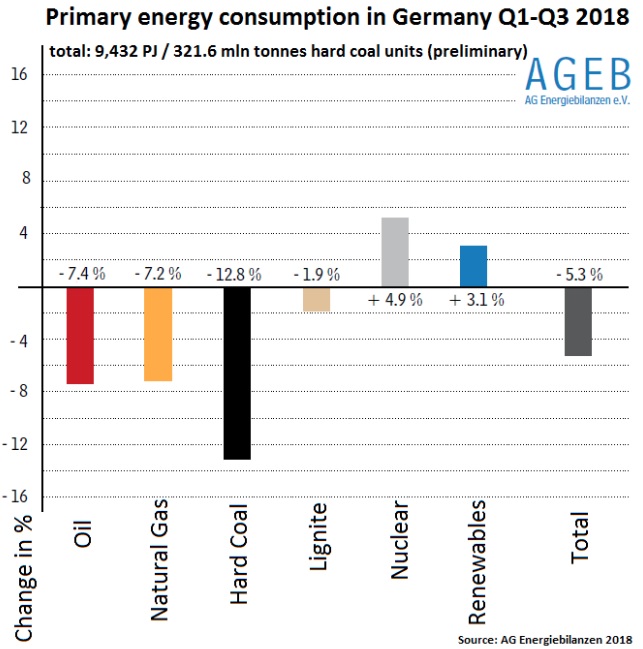Germany’s CO2 Emissions on course for largest drop since 2009, as Renewables Jump to 38% of the Energy Mix
The strong renewable power production and a warmer weather worked in tandem to lower the country's CO2 emissions by around 7 percent in the same period. Promising Germany its sharpest decline in emissions since the 2009 recession.

According to first estimates by energy market research group AG Energiebilanzen (AGEB), Germany’s CO2 emissions are on course for their largest drop since the 2009 recession this year after remaining virtually unchanged for four consecutive years.
As Germany moves towards its 2030 target of a 65 percent renewable energy mix, new data according to the German Association of Energy and Water, BDEW shows that renewables produced 38 percent of the electricity consumed in the country between January and September this year. Marking an increase of 3 percent year on year, with renewables’ share reaching as high as 43 percents in months of January, April and May.
“If we have an average amount of wind in the fourth quarter, renewables could also cover 38 percent over the entire year,” BDEW said in a statement.
The strong renewable power production and a warmer weather worked in tandem to lower the country’s CO2 emissions by around 7 percent in the same period. And according to AGEB, if this trend can be maintained for the remainder of the year, Germany would witness its sharpest decline in emissions since the 2009 recession.

For the first three quarters of the year, renewables produced almost 170 billion kilowatt-hours (kWh), coming extremely close to catching up with coal which along with lignite added up to about 172 billion kWh to the energy grid, one of the reasons for a lower emission rate. “Clearly, renewables are in the fast lane, while the contribution of conventional energy sources to cover gross power consumption is falling continuously,” said BDEW head Stefan Kapferer.
AGEB expects the country’s energy consumption to drop by nearly 5 percent due to higher prices, warmer weather, and increasing efficiencies which will outweigh the economic and population growth. “Because of the drop in consumption concerns all fossil energies, while CO2 free energy production increased, a disproportionate decrease of CO2 emissions is expected,” the group released in its statement.
However, energy experts have branded the decrease in emissions a result of a one-off effect and the data did not indicate that Germany was solidly on track for further emissions reductions in the coming years. Hans-Joachim Ziesing, a member of the federal government’s independent Energiewende commission, said, “I would warn against calling this a trend. I would also warn against believing that we are now taking big steps towards the 2020 climate targets. The gap is far too large to get there on the basis of this year’s developments.”

An emissions drop by seven percent for the entire year would lower Germany’s total emissions to 842 million tonnes, compared to 905 million tonnes in 2017. The 2020 target put a limit of 751 million tonnes on emissions in that year. However, the AGEB data only refers to “energy-related” CO2 emissions (agricultural and process-related industry emissions are not included, among others), which represent about 80 percent of total greenhouse gas emissions, according to Ziesing.
Read: Germany. The Cleantech Superpower In Need Of A Boost




